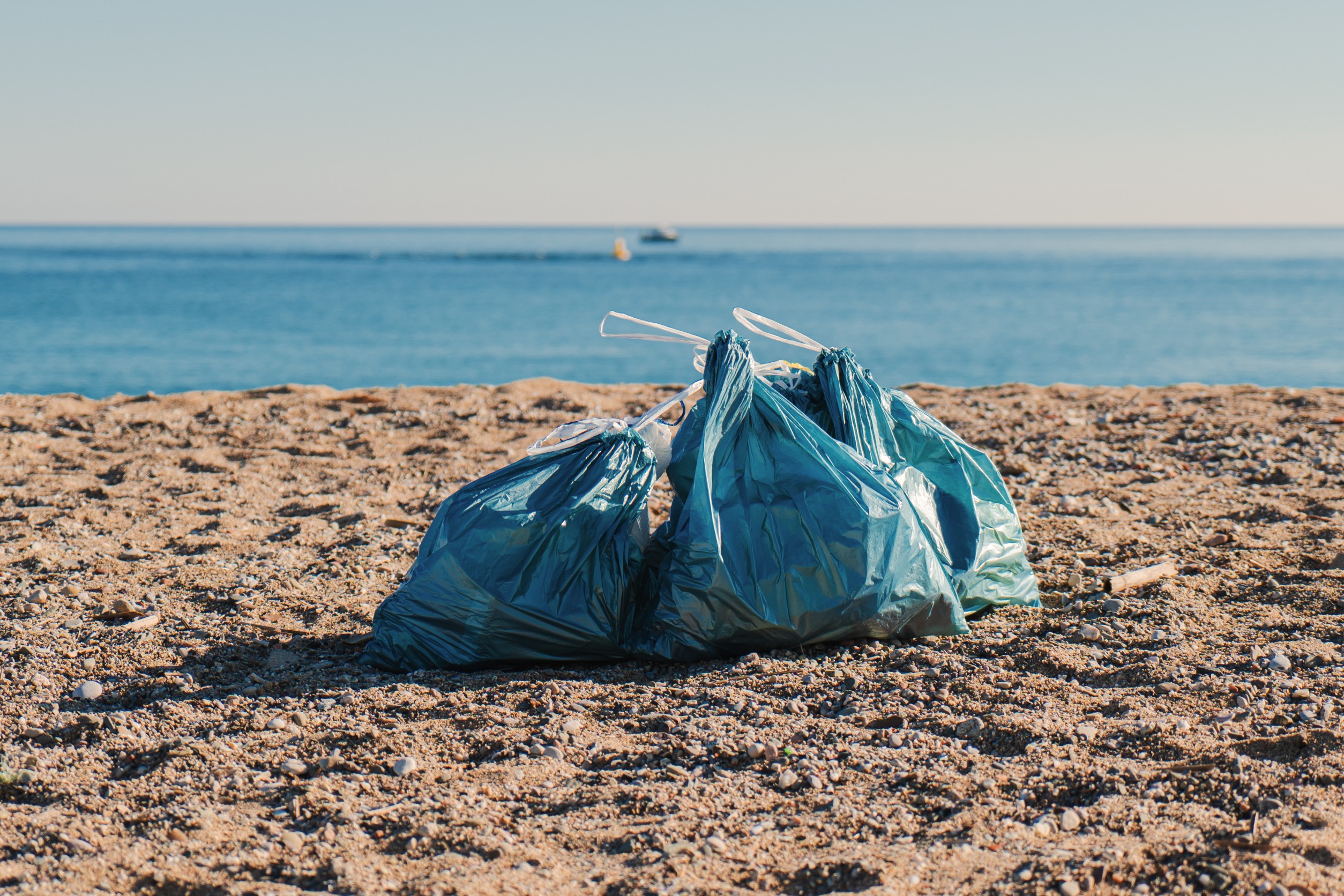BY THE OPTIMIST DAILY EDITORIAL TEAM
According to a recent Marine Conservation Society (MCS) report, the number of plastic bags collected on UK beaches has dropped by an incredible 80 percent in the past decade. This large decline coincides with the implementation of required levies for single-use plastic bags, indicating the dramatic impact of legislative actions on environmental conservation.
A decade of progress
In its annual litter survey, the MCS reported detecting an average of one plastic bag per 100 meters of shoreline in 2023, down from five bags per 100 meters in 2014. This drop is a significant victory in the ongoing fight against plastic pollution.
Lizzie Price, MCS’s Beachwatch program manager, expressed her enthusiasm for the outcomes. “It is brilliant to see policies on single-use plastics such as carrier bags working,” she said. The survey results highlight the success of required charges introduced throughout the UK, with significant decreases in plastic bag litter since the regulations were enacted.
Success of the carrier bag charge
The UK implemented a required fee for single-use plastic bags in stages: Wales in 2011, Northern Ireland in 2013, Scotland in 2014, and England in 2015. These taxes, which range from 5p to 25p, have played an important role in reducing plastic trash. In 2021, England and Scotland raised the minimum price to 10p, while Northern Ireland raised it to 25p. Wales intends to remove single-use plastic bags entirely by 2026.
The impact of these charges was quite immediate. In Scotland, for example, the average number of plastic bags recovered on beaches decreased from 11 per 100 meters in 2014 to six in 2015, only one year after the charge was implemented. Similar decreases have been recorded throughout the UK, demonstrating the effectiveness of these environmental initiatives.
Broader implications and future plans
The positive effect of the plastic bag fee goes beyond cleaner beaches. The MCS urges UK governments to increase their efforts to combat additional single-use plastics. Lizzie Price advocated for faster action on projects such as the proposed deposit scheme for plastic bottles, cans, and glass, which has been delayed until 2027.
“We must move quicker towards a society that repairs, reuses, and recycles,” Price pointed out. The MCS believes that enacting more comprehensive rules on single-use items will result in greater reductions in plastic pollution.
Continuing challenges and upcoming events
Despite the gains, difficulties persist. According to the MCS’s 2023 beach litter report, which is based on 1,199 independent surveys, 97 percent of assessed beaches still included drink-related litter, including bottles and cans. A total of 4,684 plastic bags were collected, and there was a noticeable rise in overall plastic litter, with 167 items per 100 meters of coastline.
The survey found a 1.2 percent increase in plastic litter across the UK, with significant increases in drink-related litter in Scotland (14 percent and England seven percent) compared to 2022. The most common items discovered were plastic bits measuring 2.5-30 cm, food wrappers, caps and lids, plastic rope and cable, and plastic bottles and containers.
In response to these discoveries, the MCS maintains its strong beach cleaning efforts through events such as the Great British Beach Clean, which takes place from September 20 to September 29. More than 100 trash-picking events will take place from Cornwall to the Orkney Islands, with the goal of engaging thousands of volunteers in the fight against marine waste.
The dramatic reduction in plastic bags on UK beaches demonstrates the effectiveness of focused environmental regulations. As the Marine Conservation Society continues to press for more comprehensive measures, the success of the plastic bag charge offers a promising model for addressing other forms of plastic pollution. With continued work and public participation, the aim of cleaner, healthier beaches is within reach.











